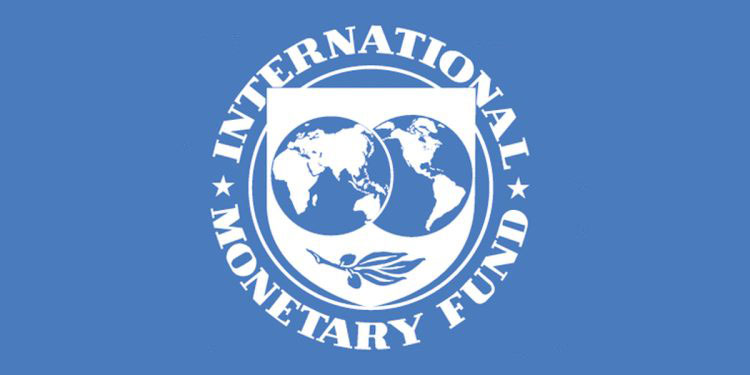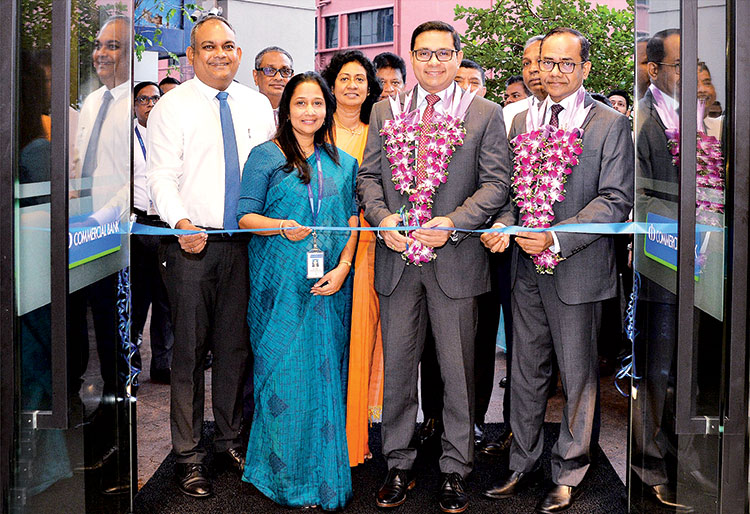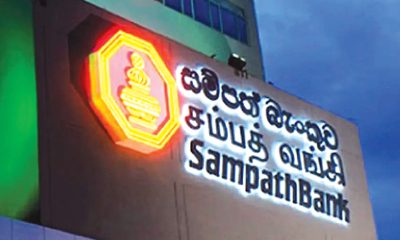Business
Sampath Bank moves ahead steadily to prove its ability to withstand strong headwinds

Amidst widespread economic uncertainty during the year 2022, Sampath Bank maintained a strong capital base and a steady liquidity profile. Proactive efforts to identify challenges and implement appropriate strategies has allowed the Bank to further reinforce its strength and stability. The Bank has also continued to lead by example in demonstrating its commitment to the national growth agenda by promoting inward remittances and encouraging the inflow of export proceeds to the Country while assisting all stakeholders to manage the current economic crisis. CSR activities were also accelerated by undertaking multiple projects under the Bank’s flagship ‘Weweta Jeewayak’ programme in order to propel the rural economy.
The Bank reported a PAT of Rs 7.2 Bn and PBT of Rs 9.3 Bn for the period ended 30th September 2022, reflecting a decline of 19.8% and 24.4% respectively, from the figures reported for the corresponding period in 2021 which is a reflection of the current economic turmoil in the Country. As at 30th September 2022, the Group reported PAT and PBT of Rs 7.7 Bn and Rs 10.2 Bn, a drop of 21.6% and 24.3% respectively compared to the corresponding period 2021.
Key financial highlights declared by Sampath Bank for 2022:
276% growth in exchange income stemming from the sharp depreciation of LKR against USD by 82% or by Rs 164.75.Sizeable 69.5% increase in net fee and commission income during the period, driven by cards and trade-related operations.
The Bank booked Rs 48.8 Bn impairment charge on loans and investments to capture possible economic uncertainties during the year.
Fund Based Income
Total interest income increased by 67.7% YoY during the nine months ended 30th September 2022, reaching Rs 106 Bn from the Rs 63 Bn reported in the corresponding period of the previous year. This was primarily due to the hike in interest rates reported in 2022, which saw the AWPLR reaching 25.95% as at 30th September 2022, denoting a 1,953 bps increase from the 30th September 2021 and 1,734 bps increase compared to the year-end 2021. The one-year T Bill coupon rate also rose to 29.85% as at 30th September 2022, an increase of 2,284 bps against 30th September 2021.
Driven by the rising market interest rates, the Bank’s interest expense increased by 57.3% compared to the corresponding period of the last year to reach Rs 52.8 Bn for the reporting period. Prudent asset and liability management ensured that net interest income increased by 79.4%
Non-Fund based income
During the reporting period, the Bank’s Net Fee and Commission Income (NFCI) increased substantially by 69.5% compared to the same period in the prior year. NFCI, which comprises of revenue from numerous sources, such as loans and advances, credit cards, trade and electronic channels increased significantly led by the card related businesses and fee and commission income derived from trade related activities.
The net other operating income for the nine months ended 30th September 2022 was Rs 18 Bn. This 320% YoY increase was attributed to the Rs 164.75 drop in value of the LKR against USD. During 2022, the Bank reported a net trading loss of Rs 3 Bn against the Rs 98 Mn loss reported during the previous year. Total foreign exchange income for the reporting period was Rs 14.5 Bn, up from the Rs 3.8 Bn recorded during the last year.
Impairment charge
The Bank has recognised a total impairment charge of Rs 48.8 Bn for the nine months ended 30th September 2022. This is a 396% increase from the Rs 9.8 Bn charge reported in the previous year. Of this, the impairment charge for loans and advances amounted to Rs 37.7 Bn, while Rs 10.3 Bn was on account of other financial instruments. In addition, an impairment charge totalling Rs 839 Mn was booked against other commitments and contingencies.
Impairment charge on loans and advances: In order to reflect the deterioration of the country’s economic environment, the Bank increased the probability weightage allocated to a worst economic scenario and revisited the EFA model which led to the recognition of a significantly higher impairment provision during the reporting period. Industries considered under elevated risk were further expanded to capture a broader range of industry specific stress factors. The potential impact of rising inflation, higher interest charges and increase in taxes on the retail segment were some of the other factors that were considered in recognizing impairment provisions.
The Bank reviewed the adequacy of the impairment provision in respect of customers in the tourism and other similarly affected industries whereby necessary and adequate impairment provisions were recognised under individually significant loan impairment. The Bank also continued to recognise impairment provision against the customers who exited the moratorium at the end of December 2021 and June 2022 as some customers have requested further concessions given the current economic outlook. In addition, steps were taken to shift customers from Stage 1 to Stage 2 based on their ability to withstand the negative effects caused by the economic downturn.
A culmination of these efforts has ensured that a higher overall provision cover of 9.8% at the end 30th September 2022 which is deemed adequate to support the Bank to absorb potential losses arising from severe macro-economic conditions.
Impairment charge on other financial instruments: The Bank provided Rs 9,040 Mn against SLISBs and Rs 935 Mn against SLDBs as at 30th September 2022. This decision was influenced by two key factors- the downgrade in Sri Lanka’s sovereign rating in May 2022 to RD from C by Fitch Ratings and the current debt restructuring actions taken by the Government. The Bank’s cumulative impairment provision for SLDBs and SLISBs stood at Rs 21.6 Bn at the end of the reporting period. Meanwhile, the Bank was able to significantly reduce the exposure to FCY instruments by converting the matured SLDBs to LKR instruments during the reporting period.
Net operating income
Total operating income for the period increased by Rs 40 Bn. However, impairment charge too increased by Rs 39 Bn, restricting the growth of net operating income to 3.7%.
Operating expenses
Operating expenses during the reporting period amounted to Rs 20.5 Bn, a 23.6% increase from Rs 16.6 Bn recorded during the corresponding period of last year. Rising inflation and the LKR depreciation were the main contributors to this increase. Despite the growth recorded in the operating expenses, the Bank’s cost to income ratio (CIR) dropped significantly by 1,460 bps and stood at 25% compared to 39.6% reported in the corresponding period of 2021. This drop in CIR was predominantly due to the increase in total operating income surpassing the rise in total operating costs.
Tax expenses
Despite the 17.6% drop in profit before VAT, the VAT on Financial Services increased by 9.3% owing to the upward movement in the VAT rate from 15% to 18%, with effect from 1st January 2022.
The Inland Revenue (Amendment) Bill issued on 11th October 2022 has not been substantively enacted by the parliament. Therefore, the Bank has not considered the changes proposed in the Bill for the reporting period.
Key ratios
The Return on Average Shareholders’ Equity (after tax) dropped to 8.08% as at 30th September 2022 compared to 11.05% reported at the end of the year 2021. Return on Average Assets (before tax) stood at 0.96% as at 30th September 2022 as against the 1.44% reported for 2021.
Capital ratios
As at 30th September 2022, the Bank maintained all its capital ratios well above the regulatory minimum requirements. Bank’s CET 1, Tier 1 and total capital ratios on 30th September 2022 were 11.31%, 11.31%, and 13.72% respectively, in comparison with 13.95%, 13.95%, and 17.02% at the end of 2021. The decline in the ratios during the reporting period is due to the combined impact of increase in risk-weighted assets resulting from the LKR depreciation, cash dividends and payment of surcharge tax.
Assets and liabilities
Sampath Bank’s total assets exceeded Rs 1.3 Tn by end of September 2022, an increase of Rs 113 Bn (annualised growth of 12.6%) from 31st December 2021 position of Rs 1.2 Tn. Increases in cash and cash equivalents as well as net loans and advances have contributed to the aforementioned growth. One of the primary causes of the balance sheet expansion can be attributed to the devaluation of the local currency during the year.
Total advances increased by 22.6% (annualised) over the reporting period, from Rs 813 Bn at the end of December 2021 to Rs 951 Bn as of 30th September 2022. The LKR loan book increased by 12.1% (annualised). It should be mentioned that the value of loans denominated in foreign currency grew significantly after the LKR depreciated by Rs 164.75 against USD during the period. If the variations in currency rates had not occurred, the total loans and advances would have shown an increase of 8.8% (annualised).During the 3Q22, the LKR deposit base grew by Rs 44.4 Bn due to deposit mobilisation initiatives promoted by the Bank. Nevertheless, growth in LKR deposit base was restricted to 0.8% compared to year end 2021.
Business
IMF staff team concludes visit to Sri Lanka

An International Monetary Fund (IMF) team led by Evan Papageorgiou visited Colombo from April 3 to 11, 2025. After constructive discussions in Colombo, Mr. Papageorgiou issued the following statement:
“Sri Lanka’s ambitious reform agenda supported by the IMF Extended Fund Facility (EFF) continues to deliver commendable outcomes. The post-crisis growth rebound of 5 percent in 2024 is impressive. Inflation declined considerably in recent quarters and has fallen to ‑2.6 percent at end-March 2025. Gross official reserves increased to US$6.5 billion at end-March 2025 with sizeable foreign exchange purchases by the central bank. Substantial fiscal reforms have strengthened public finances.
“The recent external shock and evolving developments are creating uncertainty for the Sri Lankan economy, which is still recovering from its own economic crisis. More time is needed to assess the impact of the global shock and how its implications for Sri Lanka can be addressed within the contours of its IMF-supported program.
“The government’s sustained commitment to program objectives is ensuring policy continuity and program implementation remains strong. Going forward, sustaining the reform momentum is critical to safeguard the hard-won gains of the program and put the economy on a path toward lasting macroeconomic stability and higher inclusive growth.
“Against increased global uncertainty, sustained revenue mobilization efforts and prudent budget execution in line with Budget 2025 are critical to preserve the limited fiscal space. Boosting tax compliance, including by reinstating an efficient and timely VAT refund mechanism, will help contribute to revenue gains without resorting to additional tax policy measures. Avoiding new tax exemptions will help reduce fiscal revenue leakages, corruption risks and build much needed fiscal buffers, including for social spending to support Sri Lanka’s most vulnerable. Restoring cost recovery in electricity pricing will help minimize fiscal risks arising from the electricity state-owned enterprise.
“The government has an important responsibility to protect the poor and vulnerable at this uncertain time. It is important to redouble efforts to improve targeting, adequacy, and coverage of social safety nets. Fiscal support needs to be well-targeted, time-bound, and within the existing budget envelope.
“While inflation remains low, continued monitoring is warranted to ensure sustained price stability and support macroeconomic stability. Against ongoing global uncertainty, it remains important to continue rebuilding external buffers through reserves accumulation.
“Discussions are ongoing, and the authorities are encouraged to continue to make progress on restoring cost-recovery electricity pricing, strengthening the tax exemptions framework, and other important structural reforms.
“The IMF team held meetings with His Excellency President and Finance Minister Anura Kumara Dissanayake, Honorable Prime Minister Dr. Harini Amarasuriya ; Honorable Labor Minister and Deputy Minister of Economic Development Prof. Anil Jayantha Fernando, Honorable Deputy Minister of Finance and Planning Dr. Harshana Suriyapperuma, Central Bank of Sri Lanka Governor Dr. P. Nandalal Weerasinghe, Secretary to the Treasury Mr. K M Mahinda Siriwardana, Senior Economic Advisor to the President Duminda Hulangamuwa, and other senior government and CBSL officials. The team also met with parliamentarians, representatives from the private sector, civil society organizations, and development partners.
“We would like to thank the authorities for the excellent collaboration during the mission. Discussions are continuing with the goal of reaching staff-level agreement in the near term to pave the way for the timely completion of the fourth review. We reaffirm our commitment to support Sri Lanka at this uncertain time.”
Business
ComBank unveils new Corporate Branch at Head Office

The Commercial Bank of Ceylon has transformed its iconic ‘Foreign Branch’ into the ‘Corporate Branch,’ reaffirming its commitment to delivering dedicated, comprehensive financial solutions to corporate and trade customers.
The Bank said this transformation represents a new milestone in its illustrious journey, and resonates with the rich commercial heritage of Colombo, a city that has long served as a vital trading hub in the region.
Strategically located at the Bank’s Head Office at Commercial House, 21, Sir Razeek Fareed Mawatha (Bristol Street), Colombo 1, this rebranded Corporate Branch stands as a first of its kind in Sri Lanka —a premier financial hub tailored exclusively to the needs of corporate customers, the Bank said. The transformation aligns with the Bank’s vision of providing unparalleled service excellence, bespoke financial solutions, and fostering long-term business partnerships.
Commenting on this strategic initiative, Commercial Bank’s Managing Director/CEO Sanath Manatunge stated: “It is our aspiration that just as the historic Delft Gateway, at which our Head Office is located, once opened the path to the Dutch Fort, our Corporate Branch will chart a new era of enduring and prosperous business collaborations, that will extend beyond Sri Lanka’s shores.”
Business
Fits Retail and Abans PLC Unveil Exclusive DeLonghi Premium Coffee Experience

Fits Retail has partnered with retail giant Abans PLC to showcase the iconic DeLonghi coffee machines at two of Colombo’s most prestigious locations: Abans Elite Colombo 3 and Abans Havelock City Mall showrooms.
At these dedicated demonstration zones, visitors can discover the unparalleled precision engineering and user-friendly technology that have made DeLonghi machines the preferred choice for discerning coffee lovers in more than 46 countries worldwide. Renowned for consistently delivering café-quality espresso, cappuccino, and even specialty cold brews, DeLonghi machines exemplify Italian innovation at its finest.
Yasas Kodituwakku, CEO of Fits Retail, expressed excitement about the collaboration: “This partnership represents our unwavering commitment to bringing global coffee excellence to Sri Lankan connoisseurs. With Abans PLC, we’re creating more than just demonstration spaces; we’re curating premium destinations for an authentic coffee experience.”
“As pioneers of premium lifestyle experiences in Sri Lanka, our collaboration with Fits Retail aligns seamlessly with our vision of elevating everyday moments into exceptional experiences,” said Tanaz Pestonjee, Director Business Development at Abans PLC.
-

 News4 days ago
News4 days agoSuspect injured in police shooting hospitalised
-

 Features5 days ago
Features5 days agoRobbers and Wreckers
-

 Features7 days ago
Features7 days agoSri Lanka’s Foreign Policy amid Geopolitical Transformations: 1990-2024 – Part III
-

 Midweek Review7 days ago
Midweek Review7 days agoInequality is killing the Middle Class
-

 Business4 days ago
Business4 days agoSanjiv Hulugalle appointed CEO and General Manager of Cinnamon Life at City of Dreams Sri Lanka
-

 Business6 days ago
Business6 days agoNational Anti-Corruption Action Plan launched with focus on economic recovery
-

 Features3 days ago
Features3 days agoLiberation Day tariffs chaos could cause permanent damage to US economy, amid global tensions
-

 News7 days ago
News7 days agoIChemC signs MoU with KIIT, India























